Manufacturer Part Number
MAX913CSA
Manufacturer
Analog Devices
Introduction
The MAX913CSA from Analog Devices is a fast, single, TTL-compatible comparator designed for systems that require high-speed operation and low power consumption.
Product Features and Performance
Operates from a single 5V to 10V power supply
Fast 14ns propagation delay
High common-mode rejection ratio (CMRR) of 110dB
Superior power supply rejection ratio (PSRR) of 100dB
Maximum input bias current of 5µA at ±5V
Maximum input offset voltage of 2mV at ±5V
Output current capacity of 20mA
Low quiescent current of 10mA
Product Advantages
High-speed performance suitable for fast signal processing applications
Low power consumption enhances system efficiency
Excellent signal integrity due to high CMRR and PSRR
Easy integration with TTL levels in digital systems
Key Technical Parameters
Type: with Latch
Number of Elements: 1
Output Type: Complementary, TTL
Voltage Supply, Single/Dual (±): 5V ~ 10V
Voltage Input Offset (Max): 2mV @ ±5V
Current Input Bias (Max): 5µA @ ±5V
Current Output (Typ): 20mA
Current Quiescent (Max): 10mA
CMRR, PSRR (Typ): 110dB CMRR, 100dB PSRR
Propagation Delay (Max): 14ns
Operating Temperature: 0°C ~ 70°C
Package / Case: 8-SOIC
Quality and Safety Features
Reliable operation within specified temperature ranges
Compatibility
TTL compatible outputs facilitate easy interface with digital systems
Application Areas
High-speed data acquisition
Zero-crossing detectors
Window comparators
High-speed triggers
Product Lifecycle
Obsolete status indicates that the product is no longer being produced by Analog Devices, making it important to seek replacements or upgrades for future designs.
Several Key Reasons to Choose This Product
Exceptional speed and low power consumption make it ideal for high-performance systems.
High CMRR and PSRR ensure signal integrity in noisy environments.
TTL compatibility allows for seamless integration into existing digital infrastructures.
Given its obsolescence, it remains a viable choice for maintaining or repairing legacy systems with strict component requirements.

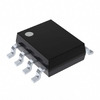
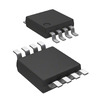
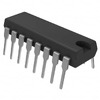
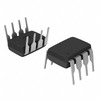
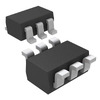 MAX9130EXT+TAnalog Devices Inc./Maxim IntegratedIC RECEIVER 0/1 SC70-6
MAX9130EXT+TAnalog Devices Inc./Maxim IntegratedIC RECEIVER 0/1 SC70-6 MAX9130EXT TAnalog Devices / Maxim Integrated
MAX9130EXT TAnalog Devices / Maxim Integrated MAX912ESE+
MAX912ESE+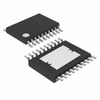 MAX9132GUP+TAnalog Devices Inc./Maxim IntegratedIC VID LVDS CROSSBAR SW 20TSSOP
MAX9132GUP+TAnalog Devices Inc./Maxim IntegratedIC VID LVDS CROSSBAR SW 20TSSOP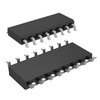 MAX912CSE+Analog Devices Inc./Maxim IntegratedIC COMPARATOR 2 W/LATCH 16SOIC
MAX912CSE+Analog Devices Inc./Maxim IntegratedIC COMPARATOR 2 W/LATCH 16SOIC